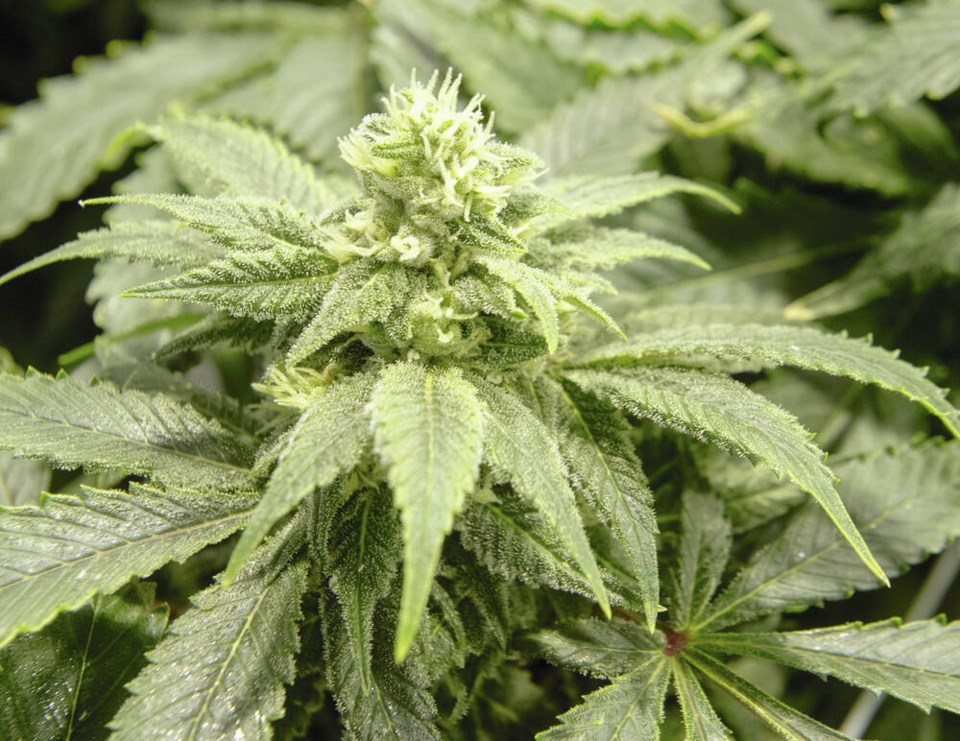Four years after the decriminalization of cannabis in Canada, the issue is so ho-hum in the home of B.C. bud that the anniversary passed virtually unnoticed.
“B.C. produces some of the best cannabis in the world,” a cabinet minister boasted this month. For people who lived through the prohibition era, it’s still slightly jarring to hear.
The government marked the moment with a modest change allowing farm-gate sales from licensed producers and a bill aimed at a holdover problem — marked growth in illicit stores that sell unregulated black market cannabis.
The legal cannabis industry is like any other enterprise now — complaining about taxes and regulation, grappling with supply-chain issues and worried about the same headaches other businesses have.
They fit right in.
B.C. Stats published results two months ago from an in-depth survey of what the change has wrought and found that it increased consumption only minimally. A third of B.C. adults reported using cannabis, up just four points from a similar survey pre-legalization.
By contrast, StatsCan released a survey over an earlier time period showing northern residents consumed the most cannabis and B.C. was in the middle of the pack.
About 24 per cent of B.C. cannabis consumers use it medically, mostly for pain, while 37 per cent consume it recreationally, about the same breakdown as previously.
The report said 71 per cent of users buy from licensed retail stores, which are now clocking more than $50 million a month in sales. The revenue is ticking upward every month.
The report says: “Since legalization, fewer people report buying cannabis from an unlicensed store (from 56 per cent to nine) or illicit dealer (from 16 per cent to nine).
Average transaction: $57.
“There is still a stigma associated with using cannabis. One in five reported experiencing negative judgment or stigma about their use.”
Half the recreational users consume it weekly or daily. The study quoted another paper that found 10 per cent of Canadian cannabis users are responsible for 66 per cent of sales. Most people report only positive impacts on their daily lives, but the report notes concern about overuse.
A quarter of the respondents who used it in the year prior to the study said they used it daily. That’s about 260,000 people in B.C. And half of them used it multiple times a day.
Although a big majority of people think cannabis impairs the ability to drive, it’s a smaller majority among people who consume it and only 53 per cent of people who use it daily hold that view.
Twenty per cent of people using cannabis admitted to driving shortly after using it at least once. That number is down from the responses in 2018.
The overall conclusion was that, despite some concerns, most are using it responsibly and usage is gradually becoming more prevalent in B.C., increasingly by way of edibles.
The pandemic had a moderate effect on consumption, with 24 per cent reporting increased usage. The most common reasons were “mental health, relaxation and boredom.”
British Columbians bought almost 85,000 kilograms of legal cannabis last year from private and government shops, paying $420 million. That’s a 28 per cent hike from the previous year and a huge jump from the $136 million generated in 2018-19.
The accelerating revenue stream is helped by an increase in retail stores, increased produce selection and price drops.
Almost 100 retail outlets were added and the number of specific products available more than doubled.
B.C. Cannabis stated: “Since legalization in 2018-19 the average wholesale price per gram of dried flower has decreased from $6.39 to $4, representing an overall reduction of 37.4 per cent.”
It’s still higher than the illicit price. One of the political selling points of decriminalization was that it would curb organized crime. It may have lost some market share, but sales from unlicensed retail outlets are still a concern.
Public Safety Minister Mike Farnworth told the legislature: “Our current estimate is that just under half the value of all cannabis consumed in B.C. is produced and sold illicitly.”
Liberal critics warned that illegal stores are rampant across B.C. and are pressing for a harder line against them.
>>> To comment on this article, write a letter to the editor: [email protected]



